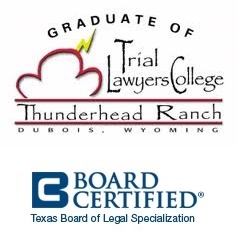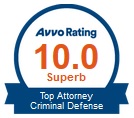 Houston Texas Juvenile Attorney Jim Sullivan is a recognized expert in juvenile law and fights to defend children accused of delinquency offenses. Since 1994, Jim Sullivan has fought to defend over one thousand children. He has defended children in juvenile court on virtually every kind of delinquency case, ranging from misdemeanor possession of marihuana to felony murder.
Houston Texas Juvenile Attorney Jim Sullivan is a recognized expert in juvenile law and fights to defend children accused of delinquency offenses. Since 1994, Jim Sullivan has fought to defend over one thousand children. He has defended children in juvenile court on virtually every kind of delinquency case, ranging from misdemeanor possession of marihuana to felony murder. Attorney Jim Sullivan is Board Certified in Juvenile Law by the Texas Board of Legal Specialization. He is a recognized expert in the highly specialized area of juvenile law. Note: Among the more than 83,000 active lawyers in Texas, there are only 38 lawyers Board Certified in Juvenile Law in private practice. The other 27 board certified lawyers work for the government.
Attorney Jim Sullivan is Board Certified in Juvenile Law by the Texas Board of Legal Specialization. He is a recognized expert in the highly specialized area of juvenile law. Note: Among the more than 83,000 active lawyers in Texas, there are only 38 lawyers Board Certified in Juvenile Law in private practice. The other 27 board certified lawyers work for the government.Juvenile Law is different than criminal law (see Juvenile Crime). Many criminal defense lawyers advertise that they are also juvenile defense lawyers, yet they may never have tried a juvenile case to a jury. In order to hold oneself out as a true expert in Juvenile Law, a lawyer has to be Board Certified in juvenile law (see requirements). To become Board Certified in a specialty area, an attorney must
- have been licensed to practice law for at least five years,
- devoted a required percentage of practice to a specialty area for at least three years,
- handled a wide variety of matters in the area to demonstrate experience and involvement (including at least 3 jury trials, 5 non-jury trials and 3 certification hearings),
- attended continuing education seminars regularly to keep legal training up to date,
- been evaluated by fellow lawyers and judges, and
- passed a 6-hour written examination.
The parents of children caught up in the juvenile justice system are very concerned about how their child’s misdemeanor or felony delinquency case could impact their future. This is a very valid concern. Colleges and universities have access to juvenile records. Clearly, a juvenile delinquent is less likely to receive a highly coveted admission to a top school. Also, law enforcement has access to juvenile records. When juveniles are stopped by the police, they may be treated differently when the police know that they have a record. There are several other ways that a juvenile record could impact your child.If your child needs a juvenile defense lawyer, you can call Attorney Jim Sullivan right now at 281-546-6428.
Great are those who do not lose their child’s heart. ~Mencius, Chinese Confucian philosopher, 4th century B.C.
Related articles













